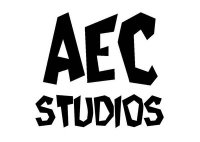
Dave Maney, Economic Revolution column (The Denver Post | Handout)
Last
week, I laid out my best guess about America's future economic
structure: That it would start to look more and more like Hollywood and
the film industry and less like what we've all thought of as the
traditional American economic system.
We're leaving the idea of
big-company jobs with a weekly paycheck behind as the core building
block of our way of life. We're headed toward a reality that is more
project-, network- and track-record driven. Just like Hollywood.
The
movie business has transformed from an
everyone's-an-employee-at-our-vertically-integrated-studio structure 50
years ago into a dazzlingly capable web of very small, very focused, and
very creative companies and individuals today. Those focused companies
and those talented individuals then come together under the umbrella of
the movie project to make their magic happen.
That's a radically
different organizational idea — each project a separate company. In the
economic structure we've all grown used to, companies have products.
But in Hollywood, the product has a company! For a short time, that is.
Once the project's done and the movie's had its run, the company goes
into suspended animation and the workers disappear into the ether, only
to re-form in a different configuration for their next project.
Wave of future: small
Think
it sounds unappealing? Maybe. But it's a thriving system — one of the
few American industries where we are unquestionably the dominant global
player without a single real challenger on the horizon.
That big,
vertically integrated studio system ultimately disintegrated because it
was too expensive and unwieldy for a business as dynamic and uncertain
as the movie industry. There was no way a studio could reliably predict
what would sell next, so a huge, high fixed-cost structure was out of
whack with the business reality.
In the non-Hollywood world, the
flood of information from the Internet and related technologies has
changed how we do business forever. The idea of corporate and job
stability is desirable but less and less attainable. The fact that it
takes surprisingly little financial capital today to start Web-enabled
businesses means that incumbents are at a disadvantage and new entrants
can be surprising giant-killers. Old-line companies can't maintain a
massive cost structure while being taken out at the ankles by leaner,
meaner Web competitors — as Best Buy and other retailers have recently
discovered.
So it's likely that we're all facing a world with more
individual economic agents and fewer employees. More small,
very-focused companies and fewer big vertically integrated ones. Intense
specialization and role playing in the workforce rather than
jacks-of-all-trades. Risk shifted from employers to individuals — but
rewards shifted in that direction too.
How do we prepare ourselves to prosper in a future economy that looks like that? Here's a few suggestions:
•
What have you done for me lately? Just like in Hollywood, your value is
increasingly determined by your track record, your performance, and
your ability to deliver in your latest project. The Web brings
information, and information brings transparency. You can't hide a lack
of talent or performance.
• Network, network, network. Your
friends and colleagues are the best source of your next gig and the gig
after that. Be the person everyone loves working with, and stay
networked to stay busy.
• Don't hide your light under a bushel
basket. You're going to have to learn to market what you know and can
do. Only Julia Roberts, Brad Pitt and a few others get agents; everyone
else has to promote and sell themselves.
• All significant
returns flow to creativity. You can know a lot of stuff, but the
Internet is always going to know more. Technicians don't make the big
dollars in Hollywood; the creative talent does. Creativity might be the
single most-important skill set in the Economic Revolution.
•
Master technology and keep your skills current. They don't use
hand-cranked cameras anymore, so wearing your technological illiteracy
as a badge won't get you dinner. The steeper the innovation curve gets,
the more critical it is that you're on the front edge of it.
•
Focus, focus, focus. It's a search-driven world. If I want a red-headed
actor who sings opera, I can find the world's best one via the Web.
Figure out what you want to be known for and keep sharpening your point
so people can find you. Be the answer to someone's search query.
•
Live frugally. Hollywood's workforce doesn't have the luxury of living
paycheck-to-paycheck. Unpredictable cash flows, even when the cash flows
are large, require planning and frugality. Living below your means
becomes a valuable skill set in the Hollywood — and our future —
economy.
No one said going Hollywood would be easy.
Dave Maney, an entrepreneur and former journalist, runs Economaney.com. Reach him at davemaney@ economaney.com
Economic Revolution Dave Maney


